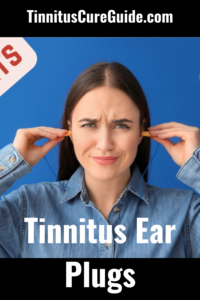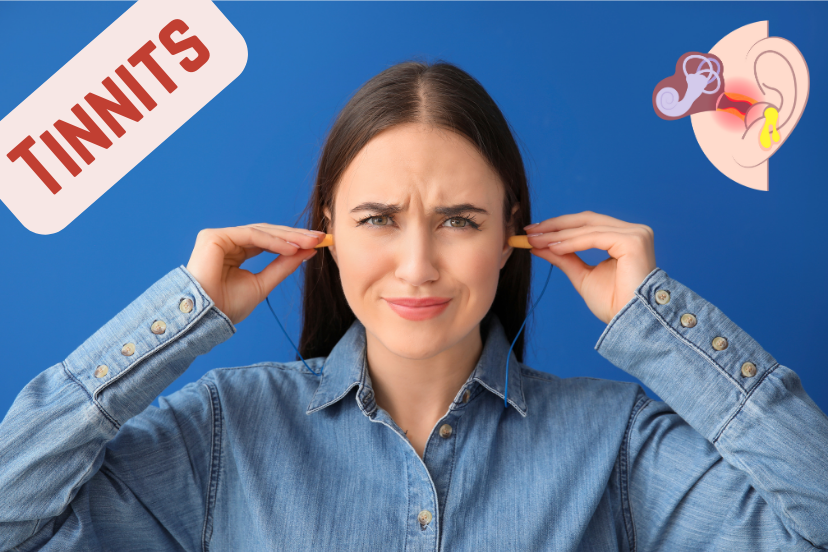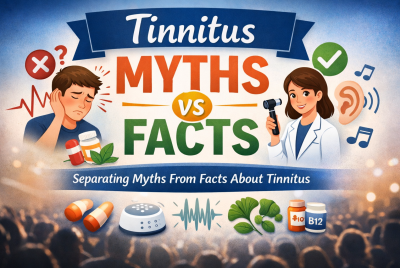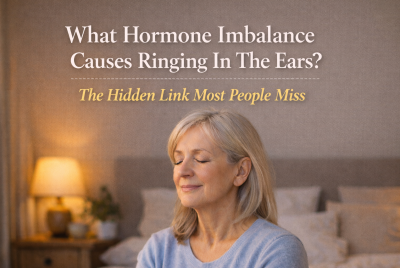Tinnitus Ear Plugs
Discover the best tinnitus ear plugs to suit your needs. Dive into factors for optimal comfort, sound quality, and protection. Tinnitus ear plugs are a simple solution for soothing tinnitus and protecting hearing health. Living with tinnitus can be a challenge. The constant ringing or buzzing in the ears can disrupt daily life and affect overall well-being. As an advisor on hearing health, I understand the importance of finding effective solutions to manage tinnitus symptoms. In this article, I will guide you through the world of tinnitus ear plugs, exploring their benefits, how to choose the right ones, and other helpful tips for managing tinnitus.
Introduction To Tinnitus Ear Plugs
Tinnitus ear plugs are specialized devices designed to alleviate the symptoms of tinnitus and protect the ears from excessive noise exposure. They provide a convenient and effective way to manage tinnitus while promoting better hearing health.
Understanding Tinnitus And Its Impact On Hearing Health
Tinnitus is a condition characterized by the perception of sound in the absence of external noise. It can manifest as ringing, buzzing, hissing, or other phantom sounds. Various factors, including exposure to loud noises, age-related hearing loss, earwax blockage, and certain medical conditions, can cause tinnitus.
The persistent nature of tinnitus can lead to stress, anxiety, sleep disturbances, and difficulty concentrating. Therefore, finding ways to manage tinnitus is crucial for maintaining overall well-being.
The Importance Of Protecting Your Ears
Before delving into tinnitus earplugs, it’s important to understand the significance of protecting your ears in the first place. Hearing loss and tinnitus are prevalent issues worldwide, affecting millions of people. They can be caused by exposure to loud noises, which can damage the delicate structures of the inner ear. Using tinnitus ear plugs can minimize exposure to loud noises and reduce the risk of tinnitus or worsening symptoms.
What Are Tinnitus Ear Plugs
Tinnitus ear plugs, also known as ear inserts or musicians’ plugs, are specially designed devices that help manage tinnitus symptoms by providing noise reduction and sound amplification when necessary. They come in various shapes, sizes, and materials, catering to different individuals’ needs.
Can Ear Plugs Cause Tinnitus
Earplugs protect the ears from loud noises, which can trigger or exacerbate tinnitus. However, incorrect insertion or prolonged use can cause earwax to build up, potentially leading to tinnitus or ear infections. It’s not the earplugs that cause tinnitus but the side effects of their improper or extended use. Always insert earplugs correctly, clean them regularly, and avoid overuse. Consult a healthcare professional if you experience increased ringing or noise after using earplugs. While earplugs can be beneficial, understanding their correct usage and potential side effects is crucial for maintaining optimal ear health.
Do Earplugs Or White Noise Help Tinnitus?
Tinnitus is a perception of ringing or noise in the ears. Earplugs can exacerbate tinnitus for some by amplifying internal noises. However, they protect against loud environments, potentially preventing worsening tinnitus. White noise, on the other hand, is often used as a masking tool, providing relief by covering the tinnitus sound with a steady, unobtrusive noise. While neither earplugs nor white noise “cure” tinnitus, they can offer relief or protection depending on the situation. For best results, individual assessment and a personalized approach are recommended. Always consult an audiologist or healthcare professional for tailored advice.
Benefits Of Using Tinnitus Ear Plugs
Using tinnitus ear inserts offers several benefits for individuals experiencing tinnitus. Let’s explore some of the advantages:
Reducing Exposure To Loud Noises
Tinnitus ear inserts effectively reduce the intensity of sounds, protecting your ears from further damage caused by loud environments or events such as concerts, construction sites, or motorsports.
Alleviating Tinnitus Symptoms
By reducing the overall sound input, tinnitus ear plugs can help minimize the perception of tinnitus, providing relief and improving daily quality of life.
Promoting Better Sleep
Tinnitus often becomes more noticeable in quiet environments, making falling or staying asleep difficult. Tinnitus ear plugs can help mask the ringing or buzzing sounds, allowing for a more peaceful and restful sleep.
Enhancing Concentration And Productivity
Tinnitus can be distracting and make it challenging to focus on tasks. Tinnitus ear plugs help create a more conducive environment for concentration and productivity, minimizing the interference caused by tinnitus.
Choosing The Right Tinnitus Ear Plugs
When selecting tinnitus ear inserts, it’s essential to consider certain factors to ensure the best fit and functionality. Here are some key considerations:
Factors To Consider
When choosing earplugs for tinnitus, consider these factors:
- Noise Reduction: Ensure the earplugs offer adequate noise attenuation.
- Comfort: They should fit snugly without causing discomfort, especially during prolonged use.
- Material: Foam, silicone, and custom-molded materials vary in comfort and durability.
- Ventilation: Vented earplugs allow some ambient sound, which can benefit certain users.
- Sound Quality: Musicians prefer high-fidelity plugs that reduce noise without distorting the sound.
- Purpose: Different plugs suit different activities, like sleeping or attending concerts.
- Hygiene: Choose earplugs that are easy to clean or replace.
- Fit: A proper fit prevents ear infections and ensures effectiveness.
Always consult an audiologist for recommendations tailored to individual needs.
Custom-Fit Vs. Generic Ear Plugs
Custom-fit tinnitus earplugs offer a personalized fit based on the impressions of your ears. While they can be more expensive, they provide superior comfort and effectiveness. Generic earplugs, on the other hand, offer convenience and affordability.
Different Styles And Materials
Tinnitus ear inserts come in various styles, such as foam, silicone, or custom-molded options. Each material has its own advantages and suitability for different situations. It’s important to explore the options and choose the one that best suits your needs.
How To Properly Use Tinnitus Ear Plugs
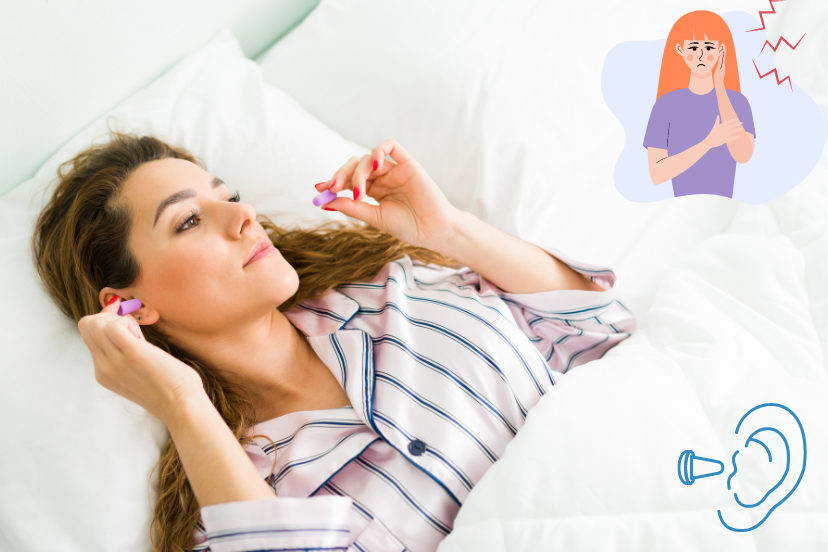
Earplugs must be used correctly to ensure the optimal effectiveness of tinnitus ear inserts. Here are some tips for proper usage:
Insertion Techniques
Follow the manufacturer’s instructions for inserting the ear inserts correctly. This ensures a secure fit and adequate noise reduction.
Maintenance And Cleaning
Regularly clean your tinnitus earplugs according to the provided instructions to prevent the buildup of earwax or dirt, which can affect their performance.
Best Ear Plugs For Tinnitus
The best earplugs for tinnitus depend on individual needs. For general noise reduction, foam earplugs provide good sound attenuation. Musicians often prefer high-fidelity earplugs, which lower volume without distorting the sound quality. Vented earplugs can benefit those sensitive to internal noises, allowing some ambient sound in. Custom-molded earplugs, tailored to an individual’s ear canal, offer superior comfort and noise protection. Sleep earplugs, designed for nighttime use, might help tinnitus sufferers who struggle with sleep. It’s crucial to ensure proper fit and cleanliness to avoid ear infections. Consulting an audiologist for personalized recommendations is advisable.
Loop Earplugs For Tinnitus
Loop earplugs offer a unique design to reduce external noise, making them a choice for tinnitus sufferers. Their circular design ensures comfort and efficient noise reduction. Minimizing external sounds help some tinnitus sufferers focus less on internal ringing. They’re especially useful in noisy environments or during events with loud music. As with all earplugs, ensuring a proper fit and maintaining cleanliness is essential. Always consult an audiologist for personalized recommendations.
Other Tips For Managing Tinnitus
While tinnitus ear plugs can be a valuable tool in managing tinnitus, there are other strategies you can incorporate into your daily routine:
Relaxation Techniques
Engaging in relaxation exercises like deep breathing, meditation, or yoga can help reduce stress and minimize the impact of tinnitus.
Sound Therapy Options
Background noise or white noise machines can help mask the tinnitus sounds, providing relief and creating a more pleasant auditory environment.
What Noise Cancels Out Tinnitus?
Sound therapy is one method that’s been proposed to help tinnitus sufferers. The idea is to use external sounds to mask or distract from the perception of tinnitus. Some of the sounds that are used in sound therapy for tinnitus include:
- White Noise: This is a type of noise that contains equal power across all frequencies. It sounds like a constant hissing or static. White noise machines or apps can produce this sound.
- Pink Noise: Similar to white noise but with more power in lower frequencies. It’s softer and more balanced than white noise.
- Brown Noise (or Brownian Noise): This has even more energy at the lower frequencies and can sound like a deep rumble, akin to the sound of a waterfall.
- Nature Sounds: Sounds of running water, rain, or waves crashing can be soothing and help distract from tinnitus.
Music: Some people find relief by listening to certain types of music, especially those with many background sounds or a consistent rhythm. - Notched Music or Sound: This involves removing music or white noise and removing the frequency corresponding to an individual’s tinnitus tone. The idea is to train the brain to ignore the tinnitus sound over time.
- Binaural Beats: These audio tracks play slightly different frequencies in each ear, producing a perceived third frequency in the brain. Some claim this can help with tinnitus, though research is mixed.
It’s important to note that what works for one person may not work for another, as the cause and experience of tinnitus can vary widely. Moreover, while these sounds can help mask tinnitus or provide temporary relief, they don’t “cancel out” tinnitus in the sense of removing it.
Seeking Professional Help
If tinnitus significantly impacts your daily life, consulting with a healthcare professional specializing in audiology or otolaryngology is essential. They can offer further guidance and recommend appropriate treatment options.
FAQs About Tinnitus Ear Plugs
1. Can tinnitus ear plugs cure tinnitus?
Tinnitus ear inserts cannot cure tinnitus, but they can help manage and alleviate its symptoms, providing relief and improving quality of life.
2. Are tinnitus ear inserts suitable for everyone?
Tinnitus ear inserts are suitable for individuals experiencing tinnitus or those looking to protect their ears from loud noises. However, it’s important to consult with a healthcare professional to ensure the best fit and suitability for your specific needs.
3. Can I sleep with tinnitus ear inserts?
Yes, tinnitus ear inserts can be worn during sleep to help mask the tinnitus sounds and promote better sleep.
4. How long can I wear tinnitus earplugs?
The duration of wearing tinnitus earplugs depends on individual needs and circumstances. Follow the manufacturer’s guidelines and consult a healthcare professional for specific recommendations.
5. Can I use tinnitus earplugs while listening to music?
Specific tinnitus earplugs offer sound amplification features, allowing you to enjoy music while protecting your ears from excessive volume levels. Consult with a professional to find the most suitable option for your needs.
Tinnitus Ear Plugs – Conclusion
Living with tinnitus doesn’t have to be a constant struggle. Tinnitus earplugs provide a practical and effective solution for managing tinnitus symptoms while protecting your hearing health. You can find relief and improve your overall well-being by choosing the right tinnitus earplugs, following proper usage techniques, and incorporating other management strategies.
Disclaimer
This article is for informational purposes only and does not substitute professional medical advice. Always consult a licensed healthcare provider before beginning new treatments, supplements, or exercise programs for tinnitus or related conditions.

